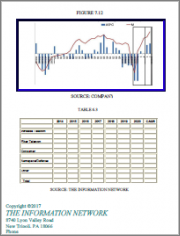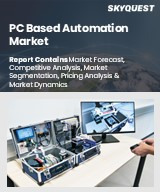
|
시장보고서
상품코드
1754144
첨단 프로세스 제어(APC) 시장 보고서 : 컴포넌트별, 최종 용도 산업별, 지역별(2025-2033년)Advanced Process Control Market Report by Component (Software, Service), End Use Industry (Oil and Gas, Petrochemical, Pharmaceutical, Food and Beverage, Energy and Power, Chemical, and Others), and Region 2025-2033 |
||||||
세계의 APC(첨단 프로세스 제어) 시장 규모는 2024년에 18억 달러에 달했습니다. 향후 IMARC Group은 이 시장이 2033년까지 34억 달러에 달하며, 2025-2033년에 6.72%의 성장률(CAGR)을 보일 것으로 예측하고 있습니다.
APC(Advanced Process Control)는 업무 효율성을 극대화하기 위해 다양한 산업에서 도입되고 있는 것련의 정교한 기술과 모델 기반 소프트웨어를 말합니다. 디지털 제어 장비와 온라인 센서가 포함되어 생산 능력과 장비의 신뢰성을 높이고, 데이터 수집을 자동화하며, 최소한의 에너지 소비로 공정 파라미터를 모니터링하는 데 도움을 줍니다. 이를 통해 기업은 제조 운영을 최적화하고, 다변량 제어 문제를 해결하고, 혼란을 줄이고, 공정 제어 시스템 요구 사항을 충족하고, 생산성을 향상시킬 수 있습니다. 현재 APC는 고도 조절 제어(ARC), 다변량 모델 예측 제어(MPC), 비선형 MPC 등 다양한 유형으로 시판되고 있습니다.
APC(Advanced Process Control) 시장 동향 :
석유화학, 화학, 제약, 석유 및 가스, 식품 및 음료, 제지 및 펄프 산업에서 APC(Advanced Process Control)가 널리 채택되고 있는 배경에는 효율적인 자동화 솔루션에 대한 요구가 증가하고 있으며, APC(Advanced Process Control)는 생산 공정에서 사람의 개입을 제거하여 사고 위험을 줄이고 안전성을 향상시킵니다. 사고 위험을 줄이고 안전성을 높입니다. 또한 특히 석유 및 가스 등 산업계에서 배출되는 가스에 대한 우려가 높아짐에 따라 각국 정부는 APC(첨단 프로세스 제어(APC))의 사용을 촉진하는 정책을 도입하고 있습니다. 이는 운영 비용, 자본 지출, 환경에 미치는 악영향을 최소화하여 시장 성장을 더욱 촉진하고 있습니다. 이와 함께 공정 분석 기술(PAT)의 통합, 오프라인 및 온라인 모델 구축, 검증, 데이터 분석 툴이 작업자에게 장착되어 산업 관련 작업을 정확하게 수행할 수 있도록 하는 기술 발전도 성장을 가속하는 요인으로 작용하고 있습니다. 또한 생산 작업의 즉각적인 수정을 가능하게 하는 APC의 광범위한 활용이 시장 성장에 기여하고 있습니다. 다른 요인으로는 주요 기업 간의 전략적 제휴와 에너지 효율적인 공정 제어 시스템을 도입하기 위한 연구개발(R&D) 활동에 대한 투자 증가가 시장 전망을 밝게 하고 있습니다.
이 보고서에서 다룬 주요 질문
- 세계의 APC(첨단 프로세스 제어(APC)) 시장 규모는?
- 2025-2033년 세계의 APC(첨단 프로세스 제어(APC)) 시장 성장률 전망은?
- 세계의 APC(첨단 프로세스 제어(APC)) 시장을 주도하는 주요 요인은?
- COVID-19가 세계의 APC(첨단 프로세스 제어(APC)) 시장에 미치는 영향은?
- 세계의 APC(첨단 프로세스 제어(APC)) 시장에서의 컴포넌트별 분류는?
- 세계의 APC(첨단 프로세스 제어(APC)) 시장에서의 최종 용도 산업별 분류는?
- 세계의 APC(첨단 프로세스 제어(APC)) 시장의 주요 지역은?
- 세계의 APC(첨단 프로세스 제어(APC)) 시장의 주요 기업은?
목차
제1장 서문
제2장 조사 범위와 조사 방법
- 조사의 목적
- 이해관계자
- 데이터 소스
- 1차 정보
- 2차 정보
- 시장 추정
- 보텀업 어프로치
- 톱다운 어프로치
- 조사 방법
제3장 개요
제4장 서론
- 개요
- 주요 업계 동향
제5장 세계의 APC(첨단 프로세스 제어) 시장
- 시장 개요
- 시장 실적
- COVID-19의 영향
- 시장 예측
제6장 시장 내역 : 컴포넌트별
- 소프트웨어
- 서비스
제7장 시장 내역 : 최종 용도 산업별
- 석유 및 가스
- 석유화학
- 의약품
- 식품 및 음료
- 에너지와 전력
- 화학제품
- 기타
제8장 시장 내역 : 지역별
- 북미
- 미국
- 캐나다
- 아시아태평양
- 중국
- 일본
- 인도
- 한국
- 호주
- 인도네시아
- 기타
- 유럽
- 독일
- 프랑스
- 영국
- 이탈리아
- 스페인
- 러시아
- 기타
- 라틴아메리카
- 브라질
- 멕시코
- 기타
- 중동 및 아프리카
- 시장 내역 : 국가별
제9장 SWOT 분석
- 개요
- 강점
- 약점
- 기회
- 위협
제10장 밸류체인 분석
제11장 Porter's Five Forces 분석
- 개요
- 바이어의 교섭력
- 공급 기업의 교섭력
- 경쟁의 정도
- 신규 진출업체의 위협
- 대체품의 위협
제12장 가격 분석
제13장 경쟁 구도
- 시장 구조
- 주요 기업
- 주요 기업의 개요
- ABB Ltd.
- Aspen Technology Inc.
- Azbil Corporation
- Emerson Electric Co.
- FLSmidth & Co. A/S
- General Electric Company
- Honeywell International Inc.
- Onto Innovation
- Panasonic Corporation
- Rockwell Automation Inc.
- Schneider Electric SE
- Siemens AG
- Yokogawa Electric Corporation
The global advanced process control market size reached USD 1.8 Billion in 2024. Looking forward, IMARC Group expects the market to reach USD 3.4 Billion by 2033, exhibiting a growth rate (CAGR) of 6.72% during 2025-2033.
Advanced process control (APC) refers to a set of sophisticated technologies and model-based software that is implemented in various industries for maximizing operational efficiency. It includes digital control units and online sensors, which aids in enhancing production capacity and equipment reliability, automating data collection, and monitoring process parameters while consuming minimal energy. This, in turn, assists enterprises in optimizing manufacturing operations, solving multivariable control problems, reducing disruption, catering process control system requirements, and improving productivity. At present, APC is commercially available in varying types, such as advanced regulatory control (ARC), multivariable model predictive control (MPC), and nonlinear MPC.
Advanced Process Control Market Trends:
The widespread adoption of advanced process control across the petrochemicals, chemical, pharmaceuticals, oil and gas, food and beverage (F&B), and paper and pulp industries can be attributed to the increasing need for efficient automation solutions. Advanced process control eliminates the involvement of humans in production processes, thereby reducing the risks of accidents and enhancing safety. Additionally, rising concerns regarding industry-generated emissions, especially from oil and gas, have prompted governments of various countries to introduce policies that promote the use of advanced process control. This, in turn, helps in minimizing the operational costs, capital expenditure, and negative environmental impact, which is further propelling the market growth. In line with this, significant technological advancements and the integration of process analytical technology (PAT) for equipping workers with offline and online model building, verification, and data analysis tools to enable the precise performance of industry-related tasks are acting as other growth-inducing factors. Moreover, the extensive utilization of APC for allowing instant modification in the production operations is contributing to the market growth. Other factors, such as strategic collaborations amongst the key players and the rising investments in the research and development (R&D) activities for introducing energy-efficient process controlling systems, are creating a positive outlook for the market.
Key Market Segmentation:
Breakup by Component:
- Software
- Service
Breakup by End Use Industry:
- Oil and Gas
- Petrochemical
- Pharmaceutical
- Food and Beverage
- Energy and Power
- Chemical
- Others
Breakup by Region:
- North America
- United States
- Canada
- Asia-Pacific
- China
- Japan
- India
- South Korea
- Australia
- Indonesia
- Others
- Europe
- Germany
- France
- United Kingdom
- Italy
- Spain
- Russia
- Others
- Latin America
- Brazil
- Mexico
- Others
- Middle East and Africa
Competitive Landscape:
The competitive landscape of the industry has also been examined along with the profiles of the key players being ABB Ltd., Aspen Technology Inc., Azbil Corporation, Emerson Electric Co., FLSmidth & Co. A/S, General Electric Company, Honeywell International Inc., Onto Innovation, Panasonic Corporation, Rockwell Automation Inc., Schneider Electric SE, Siemens AG and Yokogawa Electric Corporation.
Key Questions Answered in This Report
- 1.How big is the global advanced process control market?
- 2.What is the expected growth rate of the global advanced process control market during 2025-2033?
- 3.What are the key factors driving the global advanced process control market?
- 4.What has been the impact of COVID-19 on the global advanced process control market?
- 5.What is the breakup of the global advanced process control market based on the component?
- 6.What is the breakup of the global advanced process control market based on the end use industry?
- 7.What are the key regions in the global advanced process control market?
- 8.Who are the key players/companies in the global advanced process control market?
Table of Contents
1 Preface
2 Scope and Methodology
- 2.1 Objectives of the Study
- 2.2 Stakeholders
- 2.3 Data Sources
- 2.3.1 Primary Sources
- 2.3.2 Secondary Sources
- 2.4 Market Estimation
- 2.4.1 Bottom-Up Approach
- 2.4.2 Top-Down Approach
- 2.5 Forecasting Methodology
3 Executive Summary
4 Introduction
- 4.1 Overview
- 4.2 Key Industry Trends
5 Global Advanced Process Control Market
- 5.1 Market Overview
- 5.2 Market Performance
- 5.3 Impact of COVID-19
- 5.4 Market Forecast
6 Market Breakup by Component
- 6.1 Software
- 6.1.1 Market Trends
- 6.1.2 Market Forecast
- 6.2 Service
- 6.2.1 Market Trends
- 6.2.2 Market Forecast
7 Market Breakup by End Use Industry
- 7.1 Oil and Gas
- 7.1.1 Market Trends
- 7.1.2 Market Forecast
- 7.2 Petrochemical
- 7.2.1 Market Trends
- 7.2.2 Market Forecast
- 7.3 Pharmaceutical
- 7.3.1 Market Trends
- 7.3.2 Market Forecast
- 7.4 Food and Beverage
- 7.4.1 Market Trends
- 7.4.2 Market Forecast
- 7.5 Energy and Power
- 7.5.1 Market Trends
- 7.5.2 Market Forecast
- 7.6 Chemical
- 7.6.1 Market Trends
- 7.6.2 Market Forecast
- 7.7 Others
- 7.7.1 Market Trends
- 7.7.2 Market Forecast
8 Market Breakup by Region
- 8.1 North America
- 8.1.1 United States
- 8.1.1.1 Market Trends
- 8.1.1.2 Market Forecast
- 8.1.2 Canada
- 8.1.2.1 Market Trends
- 8.1.2.2 Market Forecast
- 8.1.1 United States
- 8.2 Asia-Pacific
- 8.2.1 China
- 8.2.1.1 Market Trends
- 8.2.1.2 Market Forecast
- 8.2.2 Japan
- 8.2.2.1 Market Trends
- 8.2.2.2 Market Forecast
- 8.2.3 India
- 8.2.3.1 Market Trends
- 8.2.3.2 Market Forecast
- 8.2.4 South Korea
- 8.2.4.1 Market Trends
- 8.2.4.2 Market Forecast
- 8.2.5 Australia
- 8.2.5.1 Market Trends
- 8.2.5.2 Market Forecast
- 8.2.6 Indonesia
- 8.2.6.1 Market Trends
- 8.2.6.2 Market Forecast
- 8.2.7 Others
- 8.2.7.1 Market Trends
- 8.2.7.2 Market Forecast
- 8.2.1 China
- 8.3 Europe
- 8.3.1 Germany
- 8.3.1.1 Market Trends
- 8.3.1.2 Market Forecast
- 8.3.2 France
- 8.3.2.1 Market Trends
- 8.3.2.2 Market Forecast
- 8.3.3 United Kingdom
- 8.3.3.1 Market Trends
- 8.3.3.2 Market Forecast
- 8.3.4 Italy
- 8.3.4.1 Market Trends
- 8.3.4.2 Market Forecast
- 8.3.5 Spain
- 8.3.5.1 Market Trends
- 8.3.5.2 Market Forecast
- 8.3.6 Russia
- 8.3.6.1 Market Trends
- 8.3.6.2 Market Forecast
- 8.3.7 Others
- 8.3.7.1 Market Trends
- 8.3.7.2 Market Forecast
- 8.3.1 Germany
- 8.4 Latin America
- 8.4.1 Brazil
- 8.4.1.1 Market Trends
- 8.4.1.2 Market Forecast
- 8.4.2 Mexico
- 8.4.2.1 Market Trends
- 8.4.2.2 Market Forecast
- 8.4.3 Others
- 8.4.3.1 Market Trends
- 8.4.3.2 Market Forecast
- 8.4.1 Brazil
- 8.5 Middle East and Africa
- 8.5.1 Market Trends
- 8.5.2 Market Breakup by Country
- 8.5.3 Market Forecast
9 SWOT Analysis
- 9.1 Overview
- 9.2 Strengths
- 9.3 Weaknesses
- 9.4 Opportunities
- 9.5 Threats
10 Value Chain Analysis
11 Porters Five Forces Analysis
- 11.1 Overview
- 11.2 Bargaining Power of Buyers
- 11.3 Bargaining Power of Suppliers
- 11.4 Degree of Competition
- 11.5 Threat of New Entrants
- 11.6 Threat of Substitutes
12 Price Analysis
13 Competitive Landscape
- 13.1 Market Structure
- 13.2 Key Players
- 13.3 Profiles of Key Players
- 13.3.1 ABB Ltd.
- 13.3.1.1 Company Overview
- 13.3.1.2 Product Portfolio
- 13.3.1.3 Financials
- 13.3.1.4 SWOT Analysis
- 13.3.2 Aspen Technology Inc.
- 13.3.2.1 Company Overview
- 13.3.2.2 Product Portfolio
- 13.3.2.3 Financials
- 13.3.3 Azbil Corporation
- 13.3.3.1 Company Overview
- 13.3.3.2 Product Portfolio
- 13.3.3.3 Financials
- 13.3.4 Emerson Electric Co.
- 13.3.4.1 Company Overview
- 13.3.4.2 Product Portfolio
- 13.3.4.3 Financials
- 13.3.5 FLSmidth & Co. A/S
- 13.3.5.1 Company Overview
- 13.3.5.2 Product Portfolio
- 13.3.5.3 Financials
- 13.3.6 General Electric Company
- 13.3.6.1 Company Overview
- 13.3.6.2 Product Portfolio
- 13.3.6.3 Financials
- 13.3.6.4 SWOT Analysis
- 13.3.7 Honeywell International Inc.
- 13.3.7.1 Company Overview
- 13.3.7.2 Product Portfolio
- 13.3.7.3 Financials
- 13.3.7.4 SWOT Analysis
- 13.3.8 Onto Innovation
- 13.3.8.1 Company Overview
- 13.3.8.2 Product Portfolio
- 13.3.8.3 Financials
- 13.3.9 Panasonic Corporation
- 13.3.9.1 Company Overview
- 13.3.9.2 Product Portfolio
- 13.3.9.3 Financials
- 13.3.9.4 SWOT Analysis
- 13.3.10 Rockwell Automation Inc.
- 13.3.10.1 Company Overview
- 13.3.10.2 Product Portfolio
- 13.3.10.3 Financials
- 13.3.10.4 SWOT Analysis
- 13.3.11 Schneider Electric SE
- 13.3.11.1 Company Overview
- 13.3.11.2 Product Portfolio
- 13.3.11.3 Financials
- 13.3.12 Siemens AG
- 13.3.12.1 Company Overview
- 13.3.12.2 Product Portfolio
- 13.3.12.3 Financials
- 13.3.12.4 SWOT Analysis
- 13.3.13 Yokogawa Electric Corporation
- 13.3.13.1 Company Overview
- 13.3.13.2 Product Portfolio
- 13.3.13.3 Financials
- 13.3.13.4 SWOT Analysis
- 13.3.1 ABB Ltd.



















